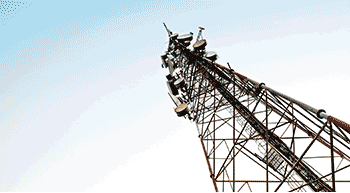Earlier last month, civic authorities sealed a mobile tower atop a school building in the town of Aurangabad in the state of Maharashtra after residents registered as many as six complaints, citing radiation concerns.
FlashNews:
ISA and IIT Delhi Partner to Build Global Solar Skills
Solar Service Searches Surge 43% Nationwide, Justdial Data Shows
Centre Clears ₹7.97 Billion Green Hydrogen Jetty at Paradip Port
ONGC Hosts 7th Para Games, Championing Inclusion in India Inc.
India’s Space Sector Secures Cyber Shield with CERT‑In, SIA‑India Guidelines
GAIL Breaks Ground on Sohna R&D Centre to Drive Clean Energy Innovation
Veolia Secures 2 Landmark Mumbai Water Projects to Boost Urban Sustainability
Emirates SkyCargo Expands India Freighter Network to Meet Rising Trade Demand
Colliers Maps 30 Industrial & Warehousing Growth Hubs Across India
PAIMANA Portal Tracks ₹39 Trillion Infrastructure Projects in January 2026
Tata Power-Warwick Alliance to Accelerate Energy Systems Innovation
India’s Space Kidz Launches World’s First Space Curriculum for Schools
Road Awards Slowdown to Hit Execution, Intensify Bidding: ICRA
Clean Energy Transition: India’s Global Leadership
Dual Airports to Handle 40 Million Passengers in 2026, Timely Ramp‑Up Crucial: Crisil Ratings
Kazipet Coach Factory Ready for Commissioning as RVNL Completes Core Works
Suzlon Reshapes Leadership: J P Chalasani Elevated, Ajay Kapur Named Group CEO
Noida International Airport Partners Mann Fleet for Seamless Ground Mobility
SDHI to Complete Five Offshore Support Vessels for San Maritime at Pipavav Shipyard
Home » ICNIRP
Tag: ICNIRP
Michael Repacholi, Founder Chairman, ICNIRP, former head, WHO EMF Project
Base stations are engineered to provide radio frequency (RF) signals to a given area called a ¨cell¨ (this is why they are sometimes called cell phones). The strength of the signal is just sufficient to allow the mobile phone user to make a good quality call. If the RF level of the base station is lowered, then the calls will either be low quality or voids will occur in the area covered so no call can be made



